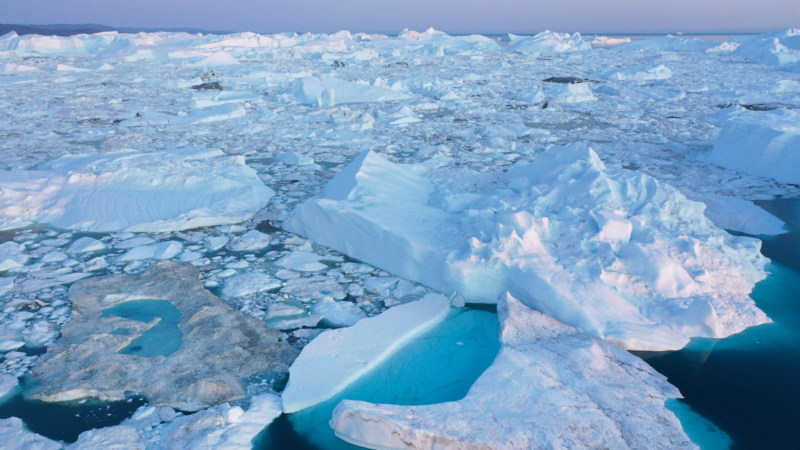Greenland may be the world’s least-populated country, but its vast and dwindling ice sheet can predict the global effects of climate, according to New York Times magazine contributing science writer Jon Gertner. In his new book, “The Ice at the End of the World: An Epic Journey into Greenland’s Buried Past and Our Perilous Future,” Gertner takes readers across the massive island to understand the forces driving the ice melt, which is set to impact hundreds of millions of people living in coastal areas. Gertner joins Forum to discuss Greenland, the role technology plays in the fight against climate change, and why the fight isn’t a lost cause.
What Greenland's Melting Ice Tells Us About Climate Change
52:42

In this aerial view meltwater forms lakes on ice in the Ilulissat Icefjord on August 04, 2019 near Ilulissat, Greenland. The Sahara heat wave that recently sent temperatures to record levels in parts of Europe has also reached Greenland. Climate change is having a profound effect in Greenland, where over the last several decades summers have become longer and the rate that glaciers and the Greenland ice cap are retreating has accelerated. (Sean Gallup/Getty Images)
Guests:
Jon Gertner, author, "The Ice at the End of the World: An Epic Journey into Greenland's Buried Past and Our Perilous Future"; contributing writer, New York Times Magazine
Sponsored